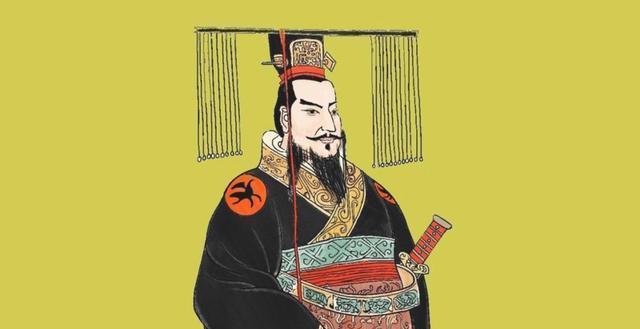Qin Shi Huang is recognized as an emperor in ancient and modern China and abroad, and it is after Qin Shi Huang that the term emperor came to an end. Liu Bang was the founder of the Han Empire, although the Qin Dynasty was not destroyed by him, most of it should be attributed to Xiang Yu, but in the end it was he who laughed to the end, he banned the Qin Dynasty's Jiangshan, and Qin Shi Huang should theoretically be regarded as an enemy. But it is such a pair of enemies, but there is an interesting little story, but also led to the emergence and continuation of a system.

After Qin Shi Huang became emperor, his power had reached its peak, and it was often said that one person had the ascension of a chicken dog to heaven, and Qin Shi Huang became emperor, so naturally he would not forget his old friends and relatives. At that time, Qin Shi Huang's father, King Xiang of Qin Zhuang, had died for a long time, and although Qin Shi Huang was an emperor, he also had family affection, and he couldn't help but feel sad when he thought of his father, so he posthumously named his father Emperor Taishang to show his condolences and respect for him. This is also the first time that the name Taishang Emperor was produced in China, after which the Qin Dynasty did not count the children and died in the second, so the name Taishang Emperor never appeared in the Qin Dynasty again.
Later, Liu Bang established the Great Han Dynasty, which can be described as the Glory of the Ancestors, and naturally wanted to go back and tell this good news to his father Liu Taigong. Liu Taigong learned that his son had become emperor before Liu Bang went, so when Liu Bang came, he welcomed Liu Bang backwards into the house, with a very humble attitude. This is mainly influenced by the ancient idea of loyalty and filial piety, and loyalty is in front of filial piety. But Liu Taigong's such a move made Liu Bang very uncomfortable, although Liu Bang had once said some bastard words because he was forced to say something out of necessity, but in essence he was still a filial piety, and Liu Taigong's nurturing grace for many years had been remembered by Liu Bang.
At this time, Liu Bang was a jun, and Liu Taigong was a courtier, and the subject did have to perform the courtesy of the king, but on the other hand, Liu Bang was the son, and Liu Taigong was the father. Because of this, Liu Bang deliberated for half a day, and suddenly came to the measures of the former Qin Shi Huang, so he appointed his father Liu Taigong as the Emperor Taishang, in order to show respect for his father, and also gave his father a position above him, so that his father could not perform the courtesy of a monarch to him.
Of course, Liu Taigong, the Emperor Taishang, was only a fictitious name, had no real power, and was not qualified to control the government, so there was no threat to Liu Bang's dominance. After that, Liu Bang set it as a system, and the emperor of the Han Dynasty also felt that this system was very good, so he continued to use it, and after the change of dynasty, the rulers did not change this system, and it has been used for two thousand years.
In addition, there is also a situation in which the Emperor Taishang has more power than the Emperor, that is, the Emperor abdicates the throne while he is alive, passes the throne to the next generation, and becomes the Emperor Taishang himself. For example, Qianlong passed the throne to his son Jiaqing, but at that time, Qianlong's dominance was almost unshakable, Jiaqing was a nominal emperor, and the power of the DPRK was still in the hands of Qianlong.
However, this phenomenon is not much in the history of our country, and the vast majority of cases are still that the emperor is more powerful than the emperor, or the emperor is posthumously sealed after his death.